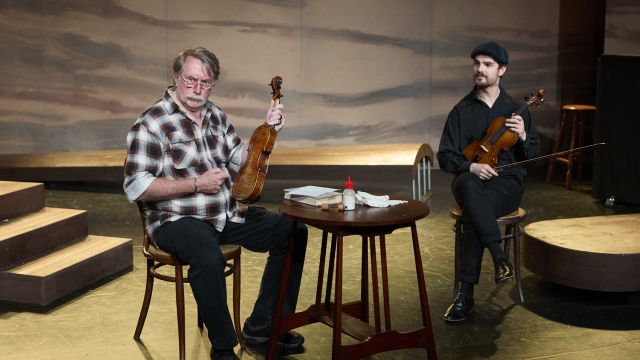Stories from the Violins of Hope
Imagine a workshop in Tel Aviv where Moshe Weinstein and his son Amnon make and repair violins. Imagine a collection of violins they have received from Jews who refused to play them because of their German origin but took them with them as they went into hiding or to camps or to face hazardous journeys. Imagine the stories those violins might tell. Stories of family celebrations and grand concerts. Stories of daring escapes … or months hiding in forests.
Laurence Coy becomes Moshe Weinstein and tells of his journey with his Zionist wife to Warsaw to learn how to make and repair violins – then to Palestine to set up his workshop. Barry French continues the story as his son, Amnon, telling of his decision to join his father in the workshop rather than continue his career in music – and how the Violins of Hope they repair eventually become part of a wonderful orchestra that takes their stories to the world.
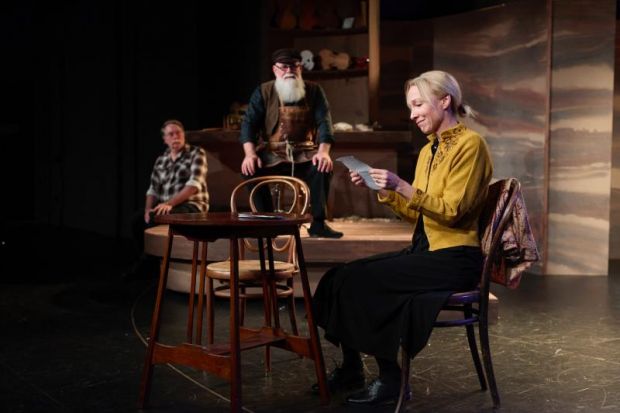
With Sophie Gregg, Kate Bookallil and Lloyd Allison-Young, Coy and French tell this remarkable story via a sensitively written script that is evocative of the time as well as the personalities of the Weinstein family, the people who bring their violins to the workshop and the folk whose stories the violins reveal. There has been much care and understanding taken in the choice of words and how they are arranged.
Similar care has been taken by Moira Blumenthal in her astute direction of this gentle, revealing play. She and her cast have grown to know the characters intimately. Their gestures, their accents, their inflections, just how long they might pause, how quickly they might turn away, how effectively they might contain their anger … or their fear.
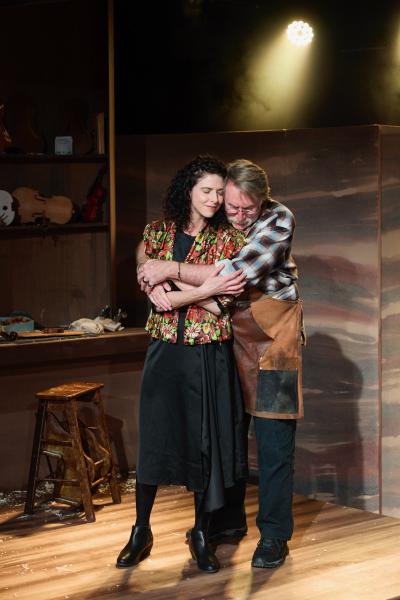
There is not one character they portray that isn’t believable, whose words and actions aren’t convincing, whose emotion isn’t real. Whether it is Coy happily watching the sheriff mete out justice in cowboy movie, the light from the screen flickering on his animated face. Or French beside him, happy to have this special time with his father. Or Gregg, face alight with optimism, persuasively urging Moshe to move to Palestine; or Allison-Young as a courageous twelve-year-old spy stealthily stuffing explosives into the wall of a restaurant frequented by Nazi soldiers to avenge the savage death of his parents and sister.
Or Bookallil, as Amnon’s beguiling wife convincing him that he must let the world know of his violins, because he ‘has restored not only the violins but the dignity of their owners”.
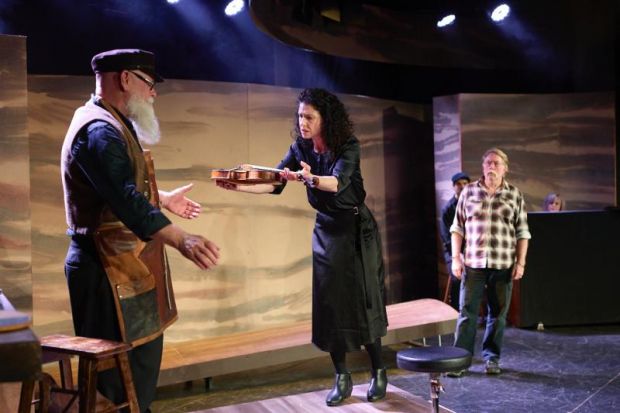
That same real emotion echoes in the music played by Dr Noreen Green on the piano – and violinists Ben Adler or Leo Novikov. Green has chosen the music perceptively – twenty-six excerpts that perfectly augment the tone and tenor of each scene. In this performance , Novikov makes the violin speak its stories in a plethora of voices, leaning into the action at times so that he and the music become an intricate part of the scene, playing watchfully in the background at others. In one scene he sits beside French, his violin giving voice to each small action as Amnon deftly repairs an instrument.
Tom Bannerman has designed a set that uses the full width of the Pavilion stage, adding levels that extend the depth of the action. Martin Kinnane lights its muted colours with creative sensitivity.
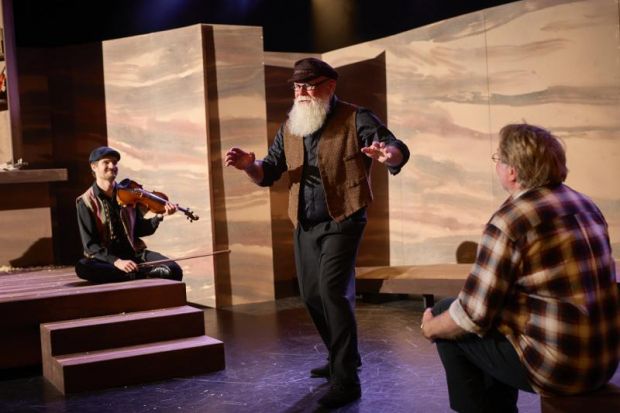
This production brings together some very skilled and experienced artists whose perception and empathy highlight the tender passion and moral significance of this very special piece of theatre.
Carol Wimmer
Photographer: James Klicin
Subscribe to our E-Newsletter, buy our latest print edition or find a Performing Arts book at Book Nook.

